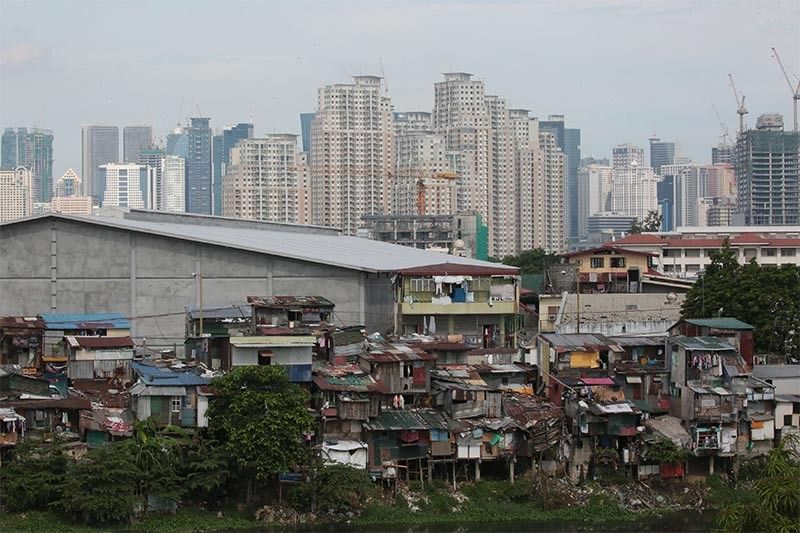SWS reports 'worst trend in survey history' as quality of life in Philippines slips

MANILA, Philippines (Update 1, 11:56 a.m.) — A large majority of Filipinos have been found to be worse off compared to a year ago, according to the results of a Social Weather Stations survey released Thursday morning.
Based on a mobile phone survey conducted between May 4 to 10, a total of 83% of working-age Filipino respondents (termed "losers" by the SWS) said that their quality of life got worse, significantly outnumbering just 10% who said their lives were "unchanged" and 6% who said their lives improved (termed "gainers").
"The May 2020 Net Gainers score of –78 (Gainers minus Losers, correctly rounded), is the worst in survey history, breaking the previous record low –50 in June 2008. It plummeted from a very high +18 in December 2019," the social research institution reported.
Although the "Net Gainers" score was often negative in SWS survey history, the May results were "a break from the positive trend of the past 5 years.".
The survey graphed the yearly change in personal quality of life among respondents since April 1983, tracking losers and gainers in each administration from late dictator and former President Ferdinand Marcos up to President Rodrigo Duterte.
Trends were also attributed to notable events in each period, such as economic crises, war and calamity and most recently, the COVID-19 crisis.
The nationwide Net Gainers score was said to be the result of "very low (-30 and below) scores in all areas", the lowest of which in the Visayas at -82. This is followed by Mindanao at -80, Metro Manila at -77 and the remainder of Luzon at -75.
“Scores in all areas dropped to all-time low figures when compared to previous SWS surveys of adults,” the survey read.
The score was found equally bad in areas classified under enhanced community quarantine and general community quarantine.
It was also found lower among hungry families, those whose pay was cut or were newly unemployed and those with less formal education.
“The Net Gainers score among working-age Filipinos whose families experienced involuntary hunger, or hunger due to lack of food to eat, is –88. This is lower than the –75 among those whose families did not experience involuntary hunger.”
In a related survey, the SWS had found that 16.7% of Filipino families (estimated 4.2 million) in May 2020 had experienced involuntary hunger.
A total of 4,010 working-age Filipinos participated nationwide in the institution’s research through mobile phone and computer-assisted telephone interviewing, including 294 in Metro Manila, 1,645 in the rest of Luzon, 792 in the Visayas and 1,279 in Mindanao.
- Latest
- Trending
































